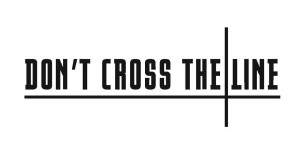The Professional/client relationship is defined by boundaries. These boundaries are the limits that allow for a justified connection between you and your client and are always based on the deliverables and the commitments made at the time of the contract. The focus on these boundaries becomes more important when the contract is a long term contract and the interaction with the client is on a daily basis.
When you have to communicate and interact with a client on a daily basis and have developed a great rapport with the client then there is a great possibility of friendliness creeping into the way you deal with each other.
Having a friendly rapport with the client is not bad but when this friendliness makes each one of you take each other for granted then there arises a situation where the professional relations blur. In a professional relationship, you can be friendly with your client, but not your client's friend. This may result in adversely affecting the quality of the services that need to be provided to the client.
As a professional, you must draw a very clear demarcation about the power that you have.
This requires you to:
· Recognize that the power of a professional relation exists
· Understand the elements of that power
· Accept that these elements create an imbalance within your professional/client relationship, and then
· Use your power appropriately within the professional/client relationship to maintain or increase the efficiency of your work and deliver quality services
This clarity of the demarcation will also make the client appreciate the work done by you. Danny Brown in one of his articles has mentioned that:
We all want to be friends. We all want to have the most amazing relationships. And, often, that can be the case (or a close resemblance to it).But we also want to be successful – for our clients, our customers, ourselves and our families who depend on us to keep a roof over their head. If we confuse friendship and relationships with friendliness and professional relationships in that order, we run the danger of losing sight of crucial decisions that need to be made.
The main catch here is that in the process of creating clear professional boundaries does not mean that we need to be high handed or totally curt and unfriendly but we need to be clear about the limits which are set for maximum mutual benefit.
The Professional Boundaries:
· In a professional relationship, you can be friendly with your client, but not your client's friend.
· Every deal or action should have a mutually benefit you and the client as it is a business relation
· Don’t talk about one client in front of another.
· Always have a written contract as this protects both the parties and can be very useful whenever there is a dispute or disagreement.
· Don’t play favorites.
· Don’t’ discuss personal issues or reveal personal information to the client.
· When a client crosses boundaries , it should be immediately brought to notice so that it is not repeated.
Professional boundaries define effective and appropriate interaction between professionals and the public they serve. Boundaries exist to protect both the professional and the client. We usually enter the danger zone when a friend becomes a client or a client becomes a friend.While we look out for our friends unreservedly, often we can’t offer the same support to our clients, vendors, customers. If you know where the cut-off point is then you know where the help can begin and end.
It is solely your individual professional responsibility to maintain the boundaries. when faced with an issue that is causing the blur, work out the options and develop and implement an action plan. And finally, don’t panic—you are human. Therefore, the heart of ethical practice is taking responsibility for your actions or seek the advice or consultation needed to restore the boundary appropriately, and, ultimately, continuing to learn and grow professionally as a result.
February 10, 2013






